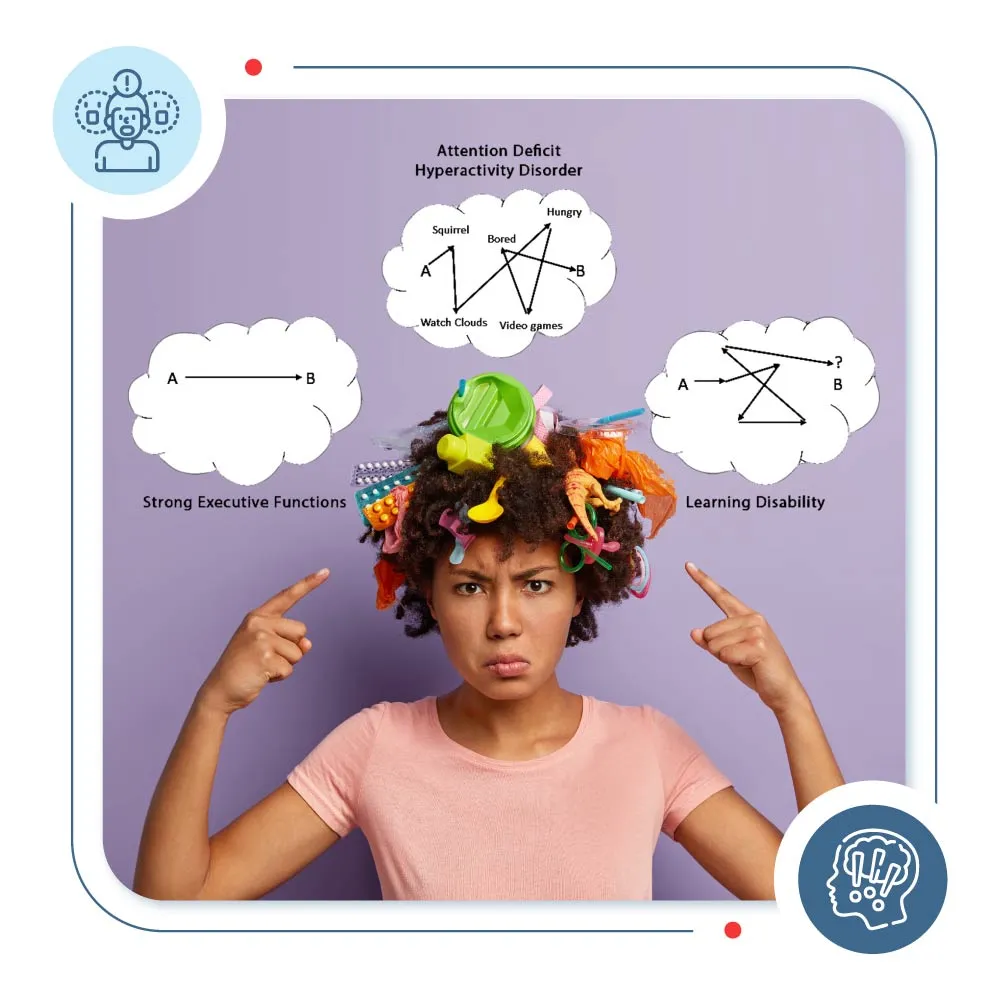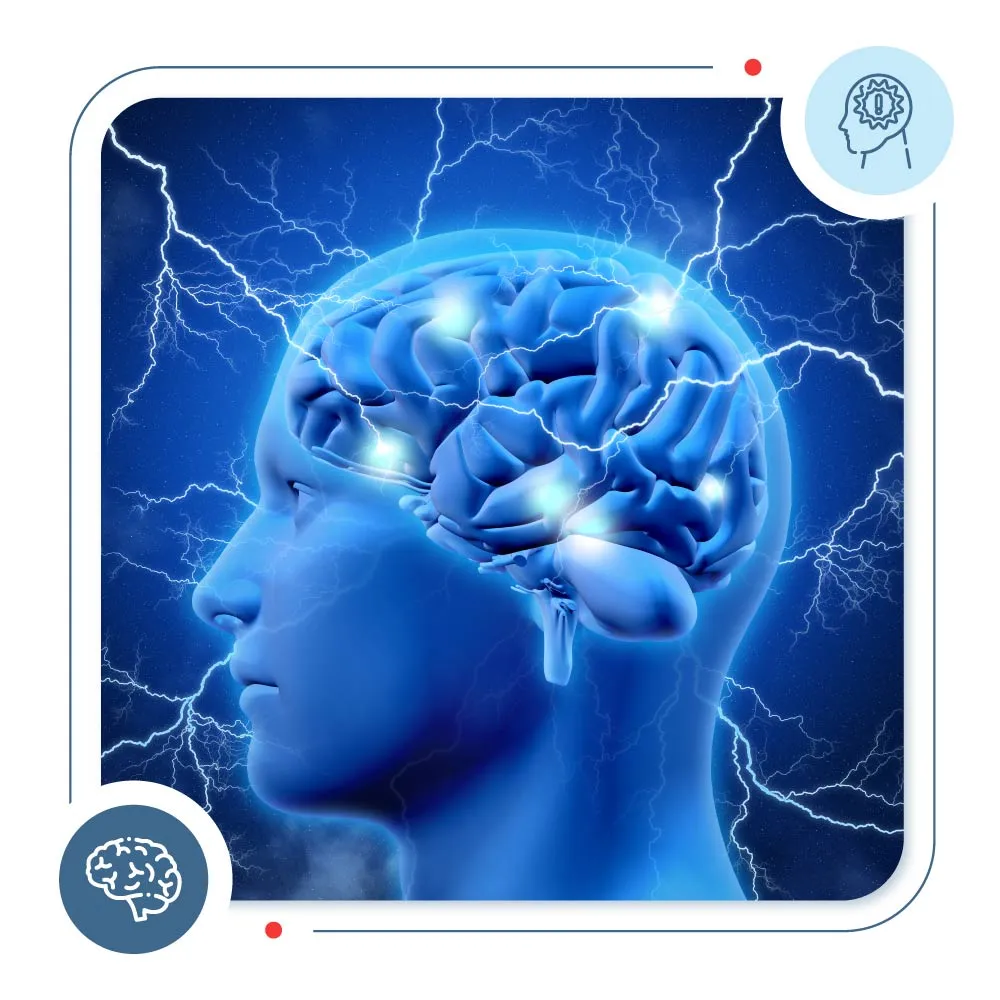Attention deficit hyperactivity disorder (ADHD)

Attention-Deficit/Hyperactivity Disorder (ADHD)
Attention-deficit/hyperactivity disorder (ADHD), also called attention deficit disorder, is a neurodevelopmental condition that can affect adults. It causes hyperactivity or excess movements that are not appropriate to the environment, attention difficulty, and impulsiveness-acting without thinking. Adults with ADHD disorder struggle with troubled relationships, low self-esteem, and difficulty at job or work.
With the right treatment, you can better cope with ADHD symptoms for a healthier routine life. At Mid Cities Psychiatry, we offer complete ADHD care, from proper medication, education, and training to the right psychotherapy and psychological counseling. Our ADHD treatment plans will help you start a new life.

Symptoms of ADHD
ADHD is often thought of as a childhood disorder, but the facts show otherwise. While ADHD may begin in childhood, many adults continue to experience symptoms throughout their lives. Many times, ADHD symptoms are mistaken for disobedience or rudeness, which is not true; these symptoms stem from neurodevelopmental changes in the brain that affect your attention, impulse control, and movements. Common signs of ADHD are categorized as follows.
Inattentive symptoms include:
- Easily distracted by external signals
- Making careless mistakes at work
- Trouble maintaining focus on tasks or organizing tasks
- Forgetting important chores or commitments frequently
- Not able to complete a task
- Procrastinating on activities requiring mental effort
- Often misplacing items of regular use
- Seems unresponsive when addressed
- Becoming bored with a task quickly
Hyperactive/impulsive symptoms are:
- Being restless, continuously moving hands or feet, or wiggling in the seat
- Talking excessively
- Interrupting others
- Unable to wait for their turn
- Trouble doing enjoyable things quietly
- Reckless or risk-taking behavior
- Trouble multitasking
- Frequent mood swings



Causes of ADHD
The exact cause has not yet been identified. Still, there is increasing proof that genetics plays a big role in the development of ADHD. It is found that multiple genes have been associated with ADHD, but no particular gene or gene combination causes ADHD. However, it is observed that relatives of ADHD people are affected by the disorder. Also, there is proof that anatomical differences in your brain can be the cause of ADHD. Other non-genetic ADHD risk factors are:
- Alcohol and tobacco use during pregnancy can affect the unborn child
- Traumatic brain injury during birth
- Low birth weight
- Preterm birth
- Prenatal exposure to toxins
- Allergies
- Psychosocial adversity in childhood

Types of ADHD
The three primary ADHD types are based on three factors: hyperactivity, inattention, and impulsivity.
Inattentive type
Inattentive type, which manifests as difficulty focusing on tasks and trouble following the goal, with poor organizational skills.
ADHD, hyperactive/impulsive
This is a rare type of ADHD that makes you restless and reckless, but you don’t face any challenges with paying attention.
ADHD combined
This is the most prevalent type, with all the hyperactive, inattentive, and impulsive symptoms.
FAQs
01
Can I stop taking ADHD medications myself?
No. If you have any thoughts about stopping the medication, it is essential to consult the doctor. Sudden cessation of medication can lead to the withdrawal of ADHD symptoms.
02
How common is ADHD?
The prevalence of ADHD across the adult population is around 2 to 5%, with an average pool of 3.1% of adults facing active symptoms of ADHD, as per the recent research done in 2023.
03
What are the consequences of Untreated ADHD?
Untreated ADHD makes you struggle in the workplace and with communicating with friends and family members. You may find it difficult to build a connection with your partner, which potentially increases the risk of relationship disputes or even divorce. You’re prone to accidents as well.
04
What’s the difference between ADD and ADHD?
Since 1994, all forms of attention deficit disorder have been officially called “Attention-Deficit/Hyperactivity disorder” (ADHD), whether or not hyperactivity is present. Some still use “ADD” informally to refer to ADHD without hyperactivity.
05
How is ADHD diagnosed?
There is no single definitive test. ADHD diagnosis requires a comprehensive evaluation, including medical history, clinical assessment of academic, social, and emotional functioning, and ruling out other conditions. ADHD Corner’s testing is especially helpful in diagnosing adult ADHD.
Real Stories, Real Recovery





We provide a comprehensive care provision for the most common mental issues people struggle with, such as PTSD, ADHD, OCD, anxiety, depression, sleep disorder, schizophrenia, and numerous other mental health conditions.





